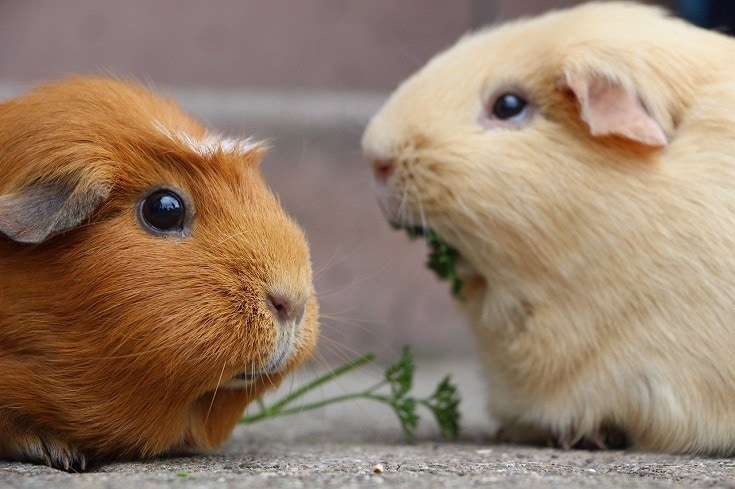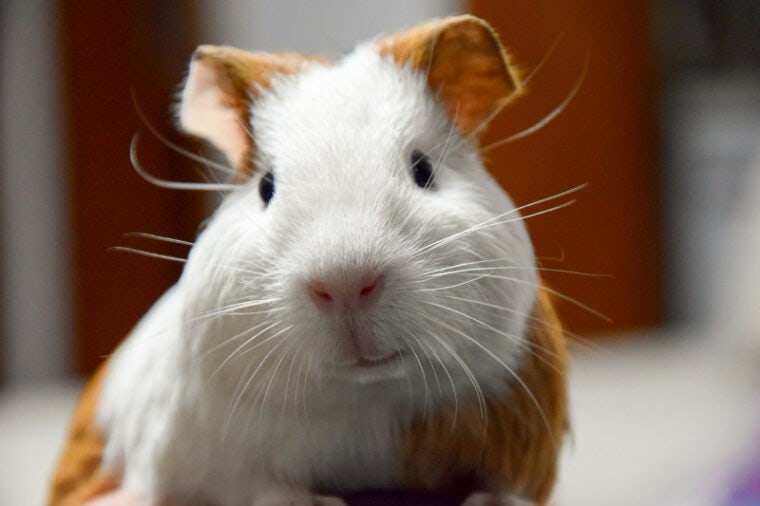
Guinea pigs are great pets that are friendly and relatively easy to maintain. They have various coat patterns and are available in many colors. However, many new owners worry that they might get fleas. While guinea pigs don’t make great hosts for fleas, they can indeed still get them. So, keep reading for several tips and tricks that you can use to prevent fleas from infesting your cavy.
Can Guinea Pigs Get Fleas?
Unfortunately, guinea pigs can indeed get fleas. Fleas aren’t as common as other skin ailments in guinea pigs (like mites), but they are nonetheless able to infest your beloved guinea pig. Guinea pigs are susceptible to both the cat flea (Ctenocephalides felis) and the dog flea (Ctenocephalides canis). This is because despite the fact that these fleas are named for a specific host, they aren’t considered host-specific but instead are classified as host-preferential. This means that they prefer a specific host but can infest non-host species too.
Currently there are no licensed products available for guinea pigs to treat fleas, so your veterinarian may suggest using certain safe products on your guinea pig based on their efficacy in a related species (such as rabbits). All of these products will be used ‘off license,’ so you will need to discuss the potential benefits and risks with your veterinarian first, and they may ask you to sign a consent form stating that you have understood this.
You should NEVER use any over-the-counter flea products on your guinea pig without your vet’s permission. This includes flea collars, shampoos, or powders. Products intended for other animals (such as cats and dogs) might be extremely toxic and potentially life-threatening for your guinea pig.
Let’s explore some of the best prevention tips for fleas in guinea pigs.
The 9 Tips for Preventing Fleas in Guinea Pigs
1. Check Your Guinea Pig Regularly
Routinely examine your guinea pig’s fur for signs of fleas, especially around the neck, belly, and hindquarters.
Signs of Fleas in Guinea Pigs:
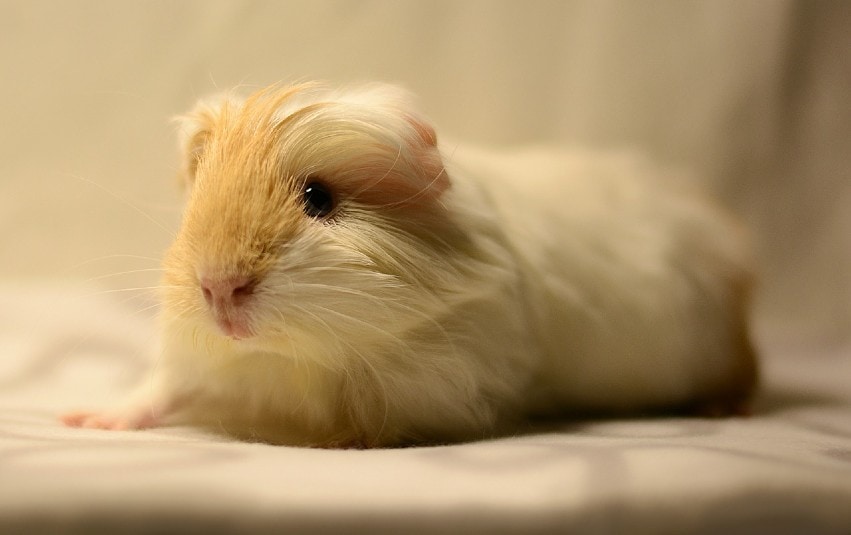
2. Clean Their Habitat
Regularly clean and sanitize the cage or enclosure to reduce the risk of a flea infestation. Fleas can live in the environment for up to 12 months without a host (in ideal conditions), so even if you get rid of the fleas on your pet, they can still come back if the habitat is not clean.
3. Avoid Contact With Other Animals
Limiting your guinea pig’s exposure to other pets or animals that may carry fleas, such as cats or dogs, is vital because fleas can easily jump from one animal to another.
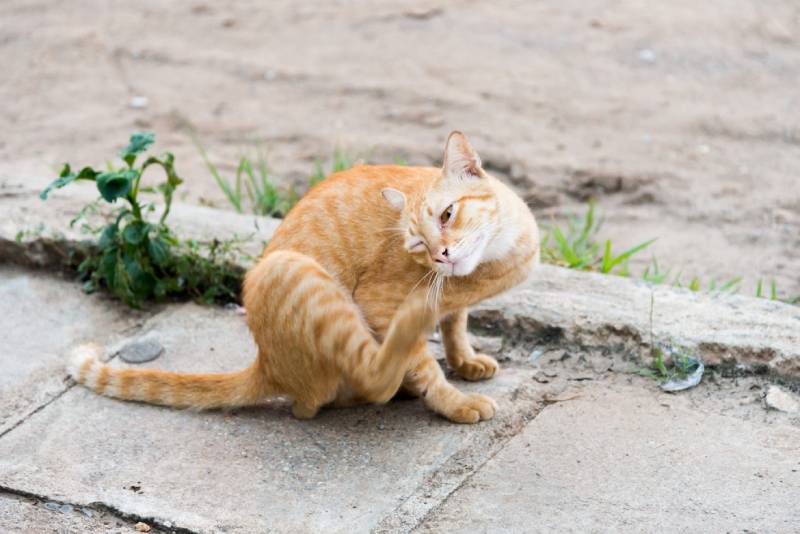
4. Consult a Veterinarian
If you suspect or confirm that your guinea pig has fleas, consult a veterinarian for proper diagnosis and treatment. They can provide appropriate flea-control methods and guidance for your guinea pig’s needs.
5. Use a Flea Comb
A good way to remove fleas from your guinea pig is to use a flea comb on your pet. This is a comb with finely spaced teeth that are close enough to each other to allow it to catch fleas when you comb your guinea pig. This can be a good way to remove fleas from your guinea pig, but it’s usually ineffective unless you implement environmental control measures as well.
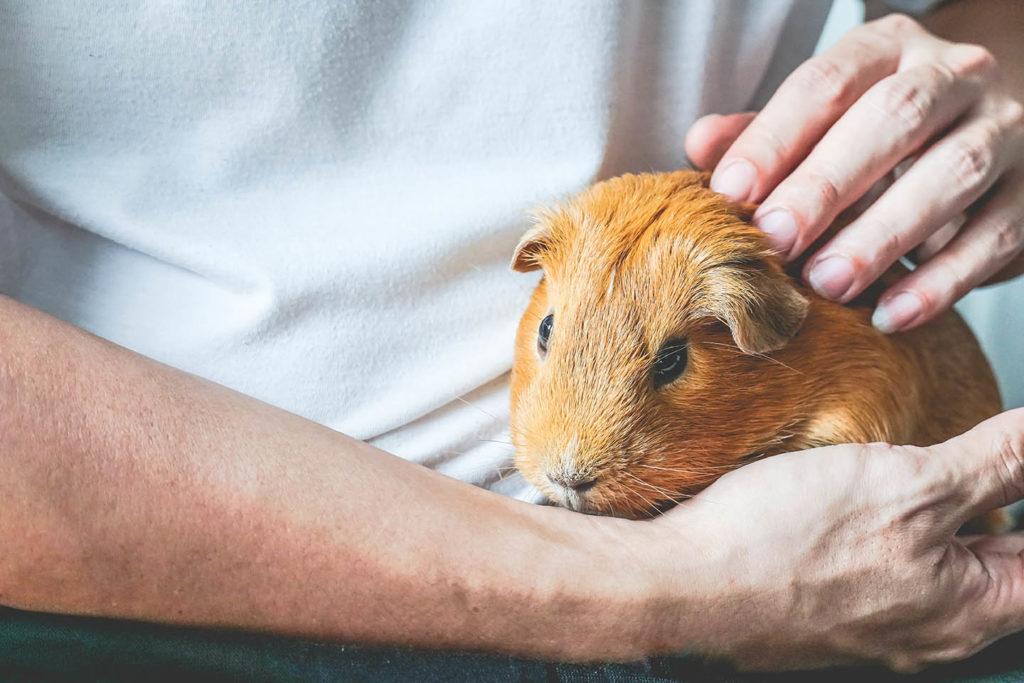
6. Keep the Environment Flea Free
Vacuum your home regularly, paying close attention to areas where your guinea pig spends time. Wash their bedding frequently to prevent a flea infestation in their living space. Fleas love damp, warm spaces and are more often found in areas with a lot of fabric, such as couches, beds, upholstery, drapes, and rugs. You should thoroughly steam clean these areas on a regular basis.
7. Quarantine New Pets
If you introduce a new pet into your home, quarantine them for several weeks to ensure that they do not bring fleas or other parasites into contact with your guinea pig.

8. Keep Animals Separated
If you have other animals dealing with flea issues (such as cats), keep them separated from your guinea pigs. Please be mindful that the medicines and chemicals on many cat collars and flea drops are very toxic for guinea pigs; close contact means that your cat might expose your guinea pig to these chemicals. Overexposure to certain chemicals can be life-threatening for guinea pigs.
9. Have All Animals Tested
Flea issues are usually a house-wide problem. If you notice them on one pet, it’s very likely that they are on your other pets, too. Therefore, if you notice fleas on your guinea pig, ensure you have your other pets looked at by a veterinarian as well. Remember that live fleas make up a very small percentage of a flea infestation population (under 10%). Therefore, it’s incorrect to assume that an animal is flea-free if you don’t spot an adult on them but see adult fleas on another animal in your house.
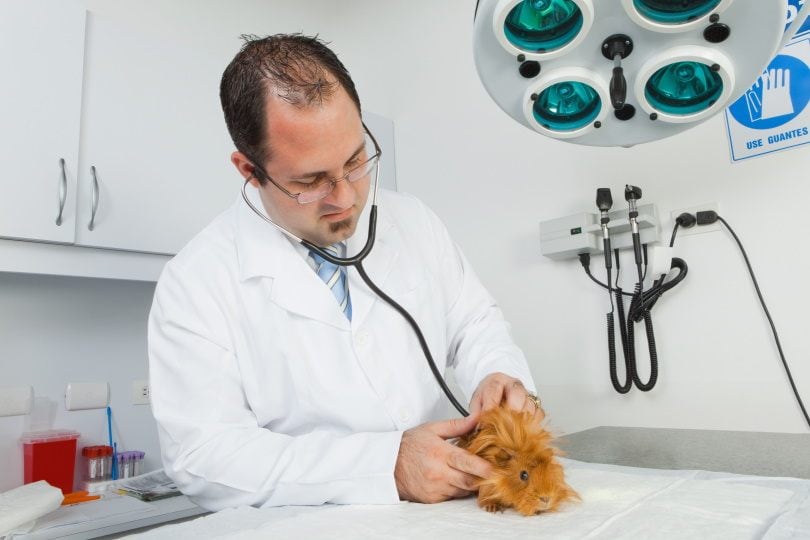
Other Tips
Are Fleas Life Threatening?
Generally speaking, fleas themselves are not immediately life-threatening. However, guinea pigs are small animals with much less blood volume than a cat or dog.
If your guinea pig has a heavy flea infestation, it’s possible for them to become anemic through blood loss, which can be dangerous. The itching and self-inflicted trauma from flea bites may also be particularly severe in some cases.
Younger guinea pigs are more susceptible to fleas than older guinea pigs because they are smaller (and therefore have less blood than an adult does). If you are breeding guinea pigs, it’s very important to keep their hutch free of fleas and other parasites. You should also have both parents checked by a veterinarian before you decide to breed them.
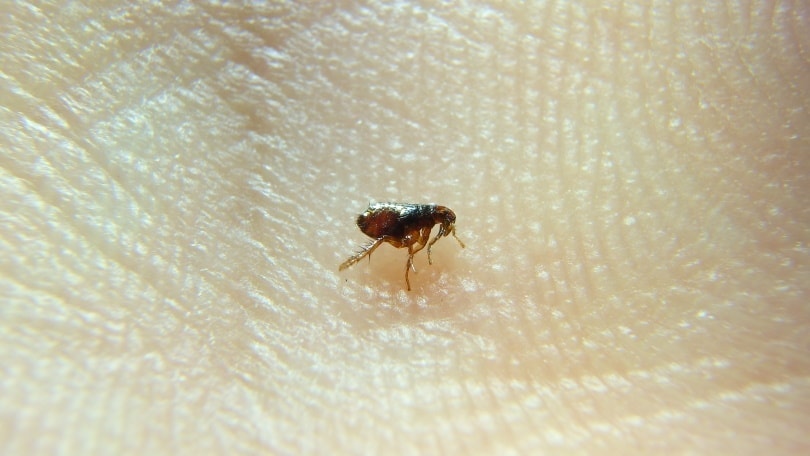
 Conclusion
Conclusion
Even though it’s not that common, guinea pigs can get fleas. If you have cats or dogs that like to spend time outside, there is a higher likelihood that your guinea pig will get fleas, but by cleaning the habitat area frequently, maintaining good hygiene, and checking your cavy often for signs of an infestation, you can eliminate fleas quickly if they appear. Never attempt to treat fleas in your guinea pig without your veterinarian’s approval. Remember that many flea products meant for cats, dogs, and other animals might be toxic for your guinea pig.
Featured Image Credit: rubyclement, Pixabay


